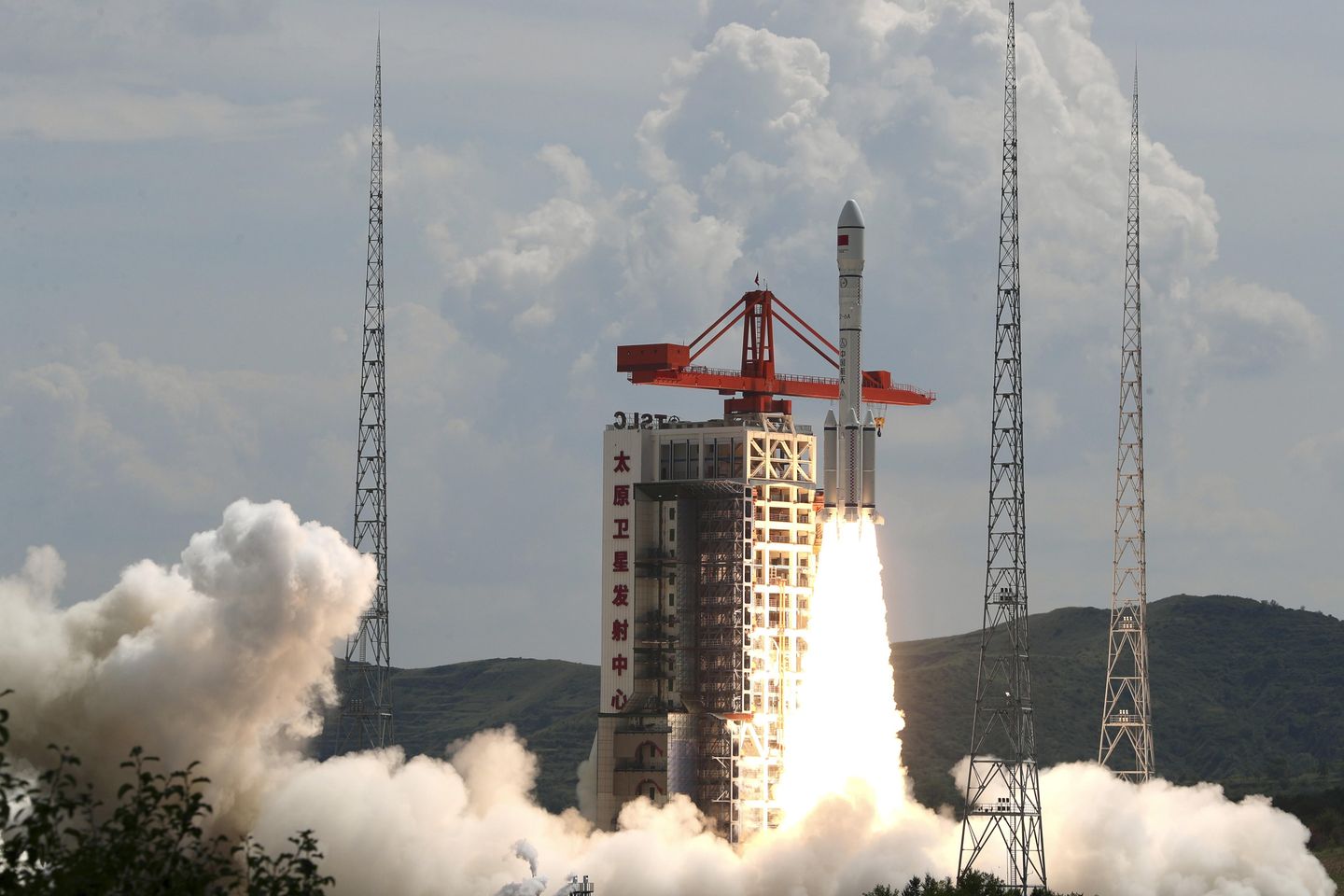
China’s military is expected to conduct attacks on U.S. satellites and their support structures during a future conflict and such attacks will be difficult to deter, according to a report by the China Aerospace Studies Institute, an Air Force think tank.
“The perception that space underpins U.S. military superiority and economic performance may make U.S. space assets an irresistible target for [Chinese military] planners during a conflict and present an increasing challenge to U.S. deterrence efforts,” the report states.
The report urges the Space Force to build countering space weaponry that can be used to target and destroy Chinese satellites.
During the Biden administration, policymakers prohibited the Space Force from building most “counterspace” weapons.
According to the report, the military needs to develop and deploy space weapons.
“Counterspace capabilities add to strategic stability through a deterrence-by-punishment strategy that increases the costs of attacking the U.S. space architecture for a potential challenger,” the report said.
Expanding space arms will give military planners greater options for responding to Chinese space attacks and tailor actions better to Chinese provocations.
“Weapons to be developed and deployed could include communication jammers and spoofers, high-powered lasers, high-powered microwaves, co-orbital capabilities, and cyber capabilities,” the report said.
The report assessed the dynamics of deterring space attacks between the U.S. and China. Deterrence often fails as a result of political factors, including leadership motivation, world views, the dominance of offensive weapons, and ambiguity in strategic signaling.
Building up U.S. space power to dissuade China for attacking satellites may be impossible, the report said.
Growing advanced Chinese military capabilities and Beijing’s active defense strategy mean the U.S. military will likely attack Chinese command and control systems, including those in space, the report said.
As a result, in a future war, “it is advantageous for both sides to conduct offensive actions against space assets in a conflict to negate the precision firepower of the other,” the report said.
On Taiwan, the Chinese military’s goal of having the power to take the island by force by 2027 will also make it difficult to deter space attacks.
China’s offensive strategy also could lead to a first strike in a future conflict, increasing the inability of the U.S. to deter a Chinese attack on satellites.
The Chinese military’s “emphasis on offensive action and the U.S. military’s dependence on space may make U.S. space assets irresistible targets,” the report said.
China views the U.S. as a malign actor in space, the report said.
Greater intelligence-gathering in space is needed, the report says.
The Space Force currently operates 600 sensors targeting 1,000 space targets among about 9,500 satellites currently in orbit.
The report was prepared by Center for Naval Analyses’ specialists Kevin Pollpeter, Elizabeth Barrett, and April Herlevi.












